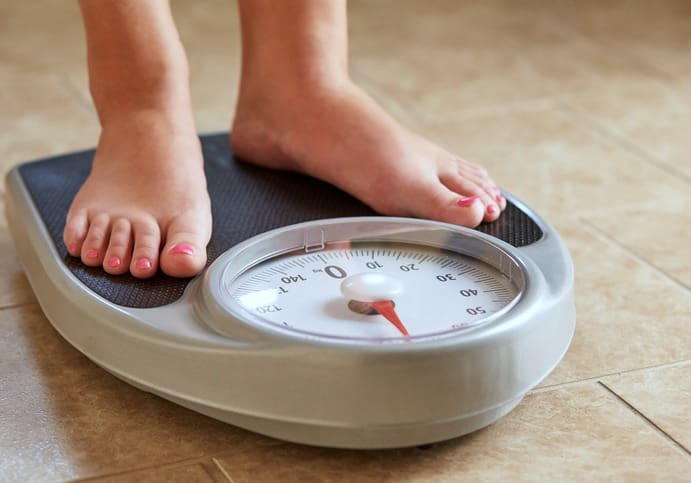 Question: “I’m 21 weeks pregnant, and I feel like I’m starting to look huge! Am I gaining too much weight!? How much weight should I gain during pregnancy?”
Question: “I’m 21 weeks pregnant, and I feel like I’m starting to look huge! Am I gaining too much weight!? How much weight should I gain during pregnancy?”
Answer: You’re not alone if you’re freaking out about your pregnancy weight gain! Many women have mixed feelings about their changing bodies when they’re pregnant—getting on the scale and seeing the number rise might be tough for you. But, the truth is, you must be ready for some weight gain during pregnancy. It’s necessary for your health and the health of your baby.
It’s important that you recognize that it’s OK to gain weight during your pregnancy. Gaining pregnancy weight doesn’t mean “letting yourself go;” you can control your weight by careful, healthy eating. But just know that you NEED to gain enough weight to meet the needs of your pregnancy.
Not gaining enough weight during pregnancy is associated with delivering a baby who is too small. Sometimes, babies born too small may be at increased risk for illness, have difficulty breastfeeding, and may not meet the milestones for their age.
However, if you gain more than the recommended amount of weight in pregnancy, it can result in having a baby who is born too large. This can lead to complications during delivery, the need for cesarean delivery, and childhood obesity. Gaining too much weight can also increase how much weight you hold on to after you deliver, which may lead to obesity.
How Much Weight Should I Gain?
When it comes to pregnancy weight gain, there’s no one-size-fits-all approach. The appropriate weight to gain during your pregnancy depends on many factors, like how much you weighed pre-pregnancy and your body mass index (BMI). If you’re unsure what your BMI is, you can use this BMI tool on the National Heart, Lung, and Blood institute’s website to determine it.
You can use these guidelines from the Institute of Medicine and National Research Council to get a general idea of how much weight to gain:
Pre-Pregnancy Weight
Underweight (BMI below 18.5)
Healthy weight (BMI 18.5 to 24.9)
Overweight (BMI 25 to 29.9)
Obese (BMI 30 or more)
Recommended weight gain
28 to 40 lbs.
25 to 35 lbs.
15 to 25 lbs.
11 to 20 lbs.
Eating for Two
You might be eating for two, but that doesn’t mean you have to eat twice as much. It’s healthiest if you can gain your pregnancy weight slowly. Most pregnant women need only about 300 healthy calories a day than before they were pregnant.
Eating a healthy, balanced diet will help your baby get the nutrients they need to grow at a healthy rate. Make sure to eat foods with a lot of nutritional value. Fresh fruits and veggies are smart choices, as are foods high in whole grains, low-fat dairy, and lean protein. Foods to avoid are those with “empty calories” that have a lot of sugar and fat but little to no nutritional value, such as potato chips, candy, and soda.
Also, for most pregnant women, it’s recommended to fit in at least 30 minutes of moderate-intensity exercise daily. Good exercises for pregnant women include brisk walking, prenatal yoga, or swimming. Make sure to connect with your health care provider before beginning to exercise. And be sure to attend every prenatal appointment. Your health care provider might suggest boosting calories or scaling back as needed to keep your pregnancy weight gain on target.
If you feel like you need help managing your weight gain, talk to your doctor. They can recommend a healthy diet and exercise program that’s right for you!
Editor’s Note: This article was originally published on July 19, 2017, and has since been updated.
